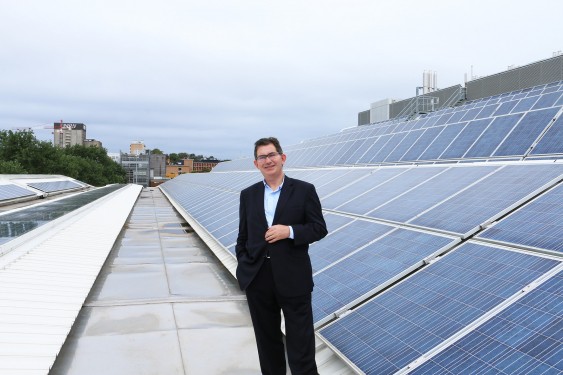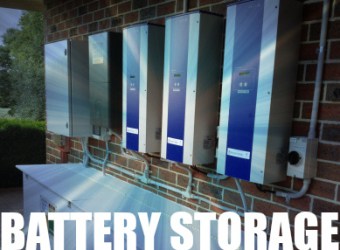Sydney professor Martin Green from UNSW has beaten out Tesla Musk to win the $820,000 Global Energy Prize for his work in the field of photovoltaics. Green will share the prize with Russian scientist Sergey Alekseenko, who is an expert in the field of thermal power engineering.
Martin Green and the Global Energy Prize

Professor Green is Director of the Australian Centre for Advanced Photovoltaics at UNSW. According to the ABC he’s a leading specialist in both mono and polycrystalline ilicone sole cells, having invented the PERC solar cell (PERC cells represent just under a quarter of the world’s silicon cell manufacturing capacity (as of end of 2017)).
We’ve written plenty of articles about UNSW solar – they’re involved in general solar power research, have launched the SunSPoT solar potential tool, and they have also recently signed a 15-year corporate PPA (Power Purchase Agreement) with Maoneng Australia and Origin Energy to become 100% solar powered, thanks to Maoneng‘s Sunraysia solar plant.
In 1989, Professor Green and his team were responsible for the solar cells in the first photovoltaic system. In 2014 he was able to double 1989’s energy conversion efficiency of 20% to 40%.
UNSW President and Vice-Chancellor Professor Ian Jacobs told the ABC that Professor Green had “delivered truly transformational outcomes in renewable energy for more than three decades”.
“Martin is a highly deserving recipient of this global prize and we warmly congratulate him,” he said.
“His fundamental and applied research has transformed the global energy sector and will continue to produce major economic and social benefits, both in Australia and worldwide.” Professor Jacobs continued.
Professor Green said receiving the award was “a great honour”.
“The efficiency of solar modules is an area whose progress has been faster than many experts expected, and this is good news,” he said.
“We need to maintain the pace of research in Australia, not only to keep our international lead, but also to benefit society by providing a cheap, low carbon source of electricity.”
This is a fantastic reward for one of Australia’s solar stalwarts and we salute Professor Green for his ongoing work with solar power technology.





